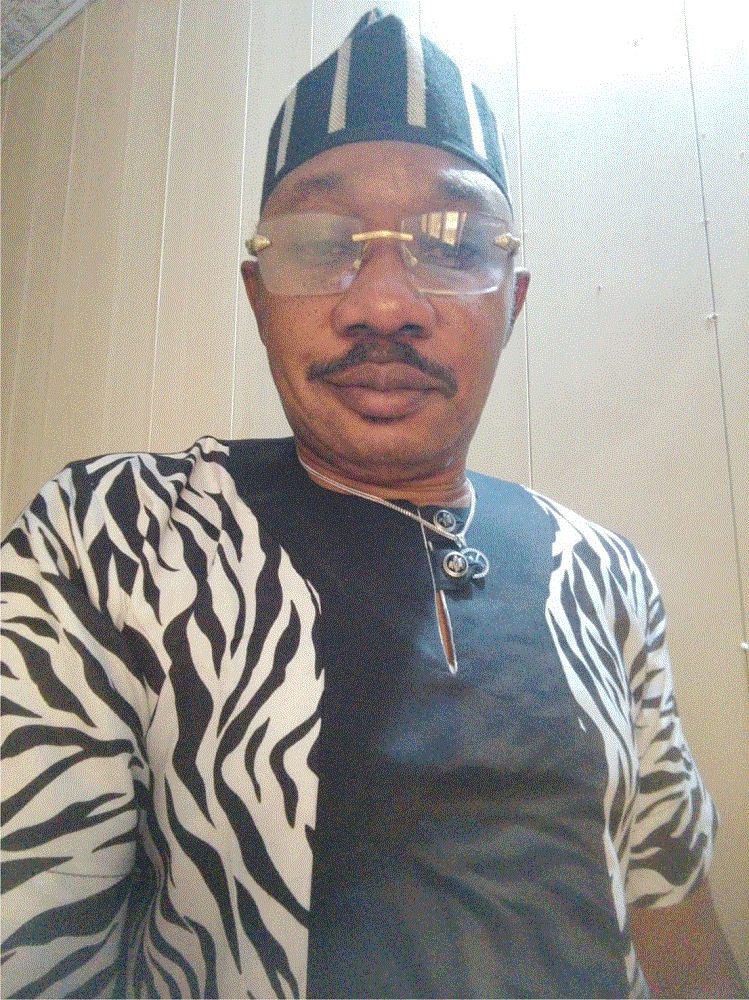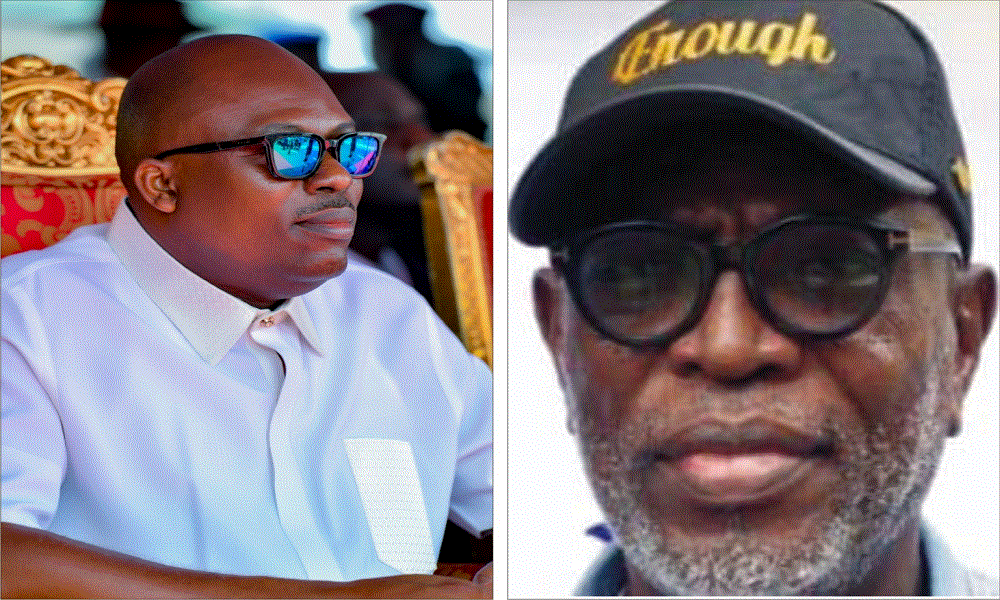27 Years After His Death, Senator Dr Obi Wali Lives On
By Bright Jossy
On this date, about 27years ago, the life of Dr Obi Wali, was cut short by hired killers , in what could be best described as a politically motivated assassination right inside his bedroom, and not an armed robbery operation.
The people of Ikwerre ethnic nationality may not have honoured him for his sacrifices to the growth and development of Iwhuruohna , for championing the cause of the Ikwerre ethnic minorities in Nigeria, but his spirit lives on.
Where ever he is now, am sure he must be very proud of the political growth of Ikwerre ethnic nationality, formerly a minority in Rivers State in particular, and in Nigeria at large, but presently the largest majority in Rivers State , and prominent minority in Nigeria, after his demise.
Dr Obi Wali, must be in endless joy for the heights so far attained by other Rumu-Iwhuruohna that he left behind. But unfortunately, those he left behind haven’t been able to remember him.
Apart from the cultural centre named after him and situated at Abonnema Warf road, which was later relocated to Air Force–Eliozu road, and changed to an international conference center, we have nothing else in memory of Dr Obi Wali.
The annual memorial lecture that was said to have been organised in his honour has become history.
The Ijaws have a special day set aside for the remembrance of Isaac Adaka Boro, Just as the Ogonis also have a special day set aside for the remembrance of Ken Saro-wiwa, but up till date, the people of Ikwerre ethnic nationality do not think that it is also necessary to remember their own hero…very sad indeed.
Though, I look forward to the day the entire Ikwerre ethnic nationality, or a group ofor Rumu-Iwhuruohna would come up with programs and activities marking the remembrance of Dr Obi Wali, and other of our fallen heroes, even as i also intend to champion an annual memorial event in collaboration with other well meaning sons and daughters of Iwhuruohna, in remembrance of Senator Dr Obi Wali and other fallen heroes of Iwhuruohna.
Ordinarily, one expected that successive governments in Rivers State or a prominent son of Ikwerre ethnic nationality, would have erected a befitting memorial building in the country home of late Senator Dr Obi Wali, as a mark of honour and respect, in recognition of his sacrifices to the cause of Iwhuruohna nation in particular and Rivers State at large , but here we are…
With just about 3years left for the administration of our present governor, His Excellency, Nyesom Ezenwo Wike, who by the grace of God is the 3rd Iwhuruohna son to have occupied the bricks house, who is also believed to have so much respect for the late Senator, one won’t be surprised if the Project Governor of Nigeria decides to change the story, by giving a facelift to the compound of the late ICON, with a befitting memorial building at the country home of Late Dr Obi Wali , along Ikwerre road, In Rumuigbo, just as the Rivers State government under the administration of Former Governor Rotimi Amaechi, built and handed over a befitting duplex to the family of Late Chief Melford Okilo , in 2009, in honour and memory of their late father.
No amount of money would be too much to spend in honour of a living legend like Dr Obi Wali, considering his sacrifices for the emancipation of Rivers State at large and Ikwerre nation in particular.
Of course it mustn’t only be done by the government, but who ever does it has also written his name in the sands of time.
WHAT YOU NEED TO KNOW ABOUT DR OBI WALI.
Obi Wali (February 27 1932 – 26 April 1993) was a minority rights activist, politician, distinguished senator, literary scholar, and an orator from Nigeria. Among his achievements, he fought for the cause of the Ikwerre ethnic minorities and argued that African literature should be written in African languages.
Obi Wali was born February 27, 1932 in Rumuigbo Town, headquarters of Apara Kingdom, in Obio Akpor Local Government Area of Rivers State. His parents were Late Chief Frank Wali Otogbo and Late Mrs. Jane Wali Otogbo daughter of the famous Late Chief Ezebunwo Amadi Nwondugba, the then paramount ruler of Oroworukwo Rebisi in Port Harcourt Local Government Area of Rivers State.
He had a younger sibbling, Late Mrs Patience Waku Okabie Worgu. He was educated at the West African People’s Institute, Calabar, followed by St. Augustine’s Secondary School, Nkwerre.
For his higher education he attended the University College Ibadan, where he specialized in literature. He then continued his studies in the United States, where he obtained a doctorate degree in literature.
Career
Wali was one of the founding fathers of Rivers State in Nigeria and served as the first Commissioner for Education, as well as a member of the first executive council of the state.
He was later elected as a member of the 1978 Constituent Assembly and also as a member of the Constitution Drafting Committee that drafted the 1979 Constitution of the Federal Republic of Nigeria.
He was elected as a senator of the Federal Republic of Nigeria in the Second Republic and in 1980 he was elected the Minority Leader of the House of Senate, Federal Republic of Nigeria.
As a politician, he is perhaps most remembered for championing the cause of the Ikwerre ethnic minorities in Nigeria. Senator Wali was one of the best known leaders from the Niger Delta region to consistently campaign against the marginalization of the Niger Delta people (particularly the Ikwerre ethnic nationality).
He fought for the creation of Port Harcourt out of the then Rivers State of Nigeria.
Creating the Port Harcourt State for the Ikwerre people was an important achievement in his advocacy for the end of the marginalization and oppression of the Ikwerre, and the state-inspired exploitation of their resources.
Wali campaigned for the correction of the imbalances in the socio-economic and political power of the Nigerian state throughout his political career.
He also is remembered for his call for a critical examination of Nigeria’s commitments to the Economic Community of West African States (ECOWAS).
In addition to his political roles, Wali was a professor at the University of Nigeria, Nsukka, where he taught courses including “Introduction to African Literature.” Beyond his educational and political contributions in Nigeria, Wali also contributed to literary scholarship.
Contributions and views on African literature.
Wali is known for his assertion that African literature should only be written in African languages. He emphasized the importance that works deemed “African” be written in the languages of the African peasantry and working classes rather than in English or other foreign languages.
Through an alliance of these classes within the many nationalities of Africa, he predicted an “inevitable revolutionary break with neo-colonialism.” He expressed these views in his controversial essay “The Dead End of African Literature”, which is considered a landmark in the field of African literary modernity.
In the essay, Wali writes “an African writer who thinks and feels in his own language must write in that language.” Wali presented this paper in 1962 at Makerere University in Uganda at the first major conference on new African writing at the institution.
The well-known paper went on to be published in the tenth issue of Transition magazine.
Although opposed by some, Wali’s essay has been lauded by many African literary giants such as Ngũgĩ wa Thiong’o, who changed his name to a traditional African name after reading Wali’s argument.
Additionally, Wali argues that it is necessary for literary critics to learn African languages before analyzing African literary texts and producing theories about their meanings.
Wali and Ngũgĩ’s viewpoint that African literature be exclusively written in African languages is often positioned in opposition to the opinions of Chinua Achebe and Ama Ata Aidoo, who argued that African literature can also be written in foreign languages.
Suspected assassination.
Wali was violently murdered and dismembered at home in his bedroom by suspected hired assassins on 26 April 1993.
The reasons for the murder remain unestablished; however, many speculated that it was in connection with his political opinions.
At the time of his murder, Wali was a respected Nigerian Senator of Rivers State. He was later buried on 24 February 1994. This was not long before the Nigerian state executed another minority rights activist, Ken Saro-Wiwa.
The case of Wali’s murder was brought before a commission investigating human rights abuses, before which allegations of cover up were forwarded by the Ikwere Community and Wali’s son, Ihunwo Obi Wali , along with his wife Nnenna.
Bright Jossy files in the piece from Port Harcourt.


